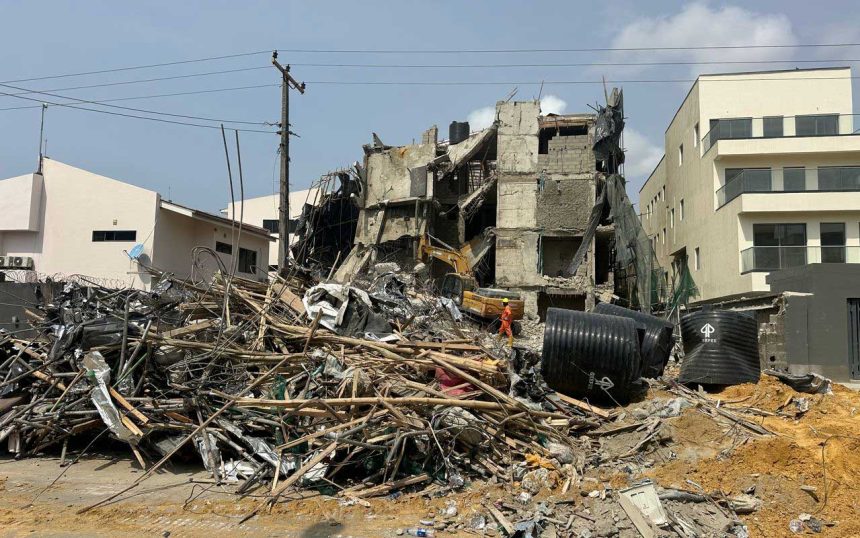Building Collapse Prevention Guild (BCPG), Niger State chapter, has issued a serious warning following a catastrophic flood that left over 580 homes destroyed and 161 people dead.
The Guild’s on-site assessment in Mokwa revealed devastating damage, prompting urgent calls for Nigeria to shift from reactive disaster response to proactive infrastructure oversight.
According to a joint statement by BCPG’s Chairman, Engr. Nasir Illo, General Secretary Ibrahim Shittu, and PRO Sheshi Mohammed Raba, the destruction was intensified by the collapse of a railway embankment. The structure, which had been holding back unusually heavy rainfall recorded by the Nigerian Meteorological Agency (NiMet), ultimately failed—unleashing a powerful flood that ravaged homes, roads, and culverts in its path.

The Guild stressed that while the rain was a natural event, the scale of destruction was avoidable. The failure of critical infrastructure exposed the deadly consequences of weak systems in the face of climate-driven events. Floodwaters tore through Mokwa and spilled into River Niger via the River Dingi, overwhelming nearby villages such as Rabba.
BCPG is urging the Federal and Niger State governments to immediately provide emergency aid and begin full-scale rehabilitation. They’re also calling on the Nigerian Railway Corporation to launch a technical review of all railway dykes and culverts to prevent future failures. Planning authorities were advised to update building codes for high-risk areas, enforce the use of stronger materials, and ensure proper drainage and site selection.
Related Posts:
- Ojodu Building Collapse a Painful Reminder of…
- Guild Calls for Probe into Lekki Building Collapse Incidents
- Experts Say Nigeria’s Soaring Building Collapses…
- Building Collapse Prevention Guild Raises Alarm Over…
- NEMA Dispatches Officials to 15 States Amid Rising…
- Four Dead, Seven Injured in Kano Building Collapse…
In addition, the Guild pushed for improved flood early warning systems and more rigorous hydrological studies. They emphasized the need for state and local governments to strengthen disaster response frameworks with clear operational plans, funding, and training.
The Guild concluded by urging Nigeria to institutionalize post-disaster evaluations and use them to shape national policy. The Mokwa tragedy, they warned, is a harsh reminder that without resilient infrastructure and a commitment to preparedness, the country remains dangerously exposed.



